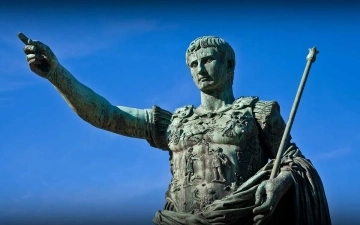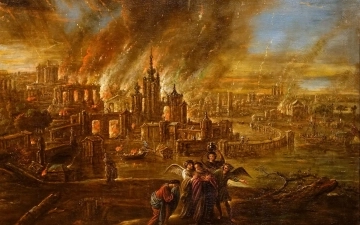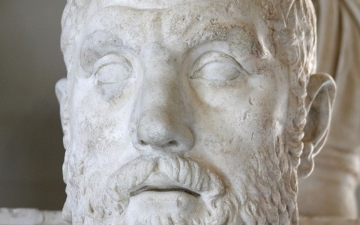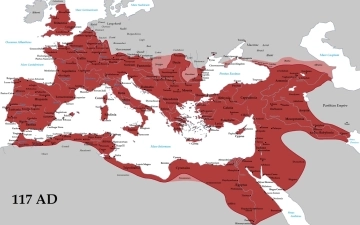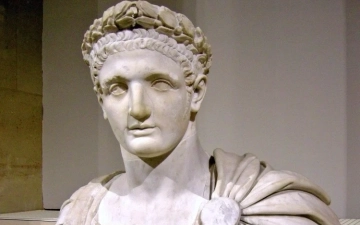Commodus: The Emperor Who Blurred the Lines Between Rome’s Greatest Ruler and Its Most Notorious Madman
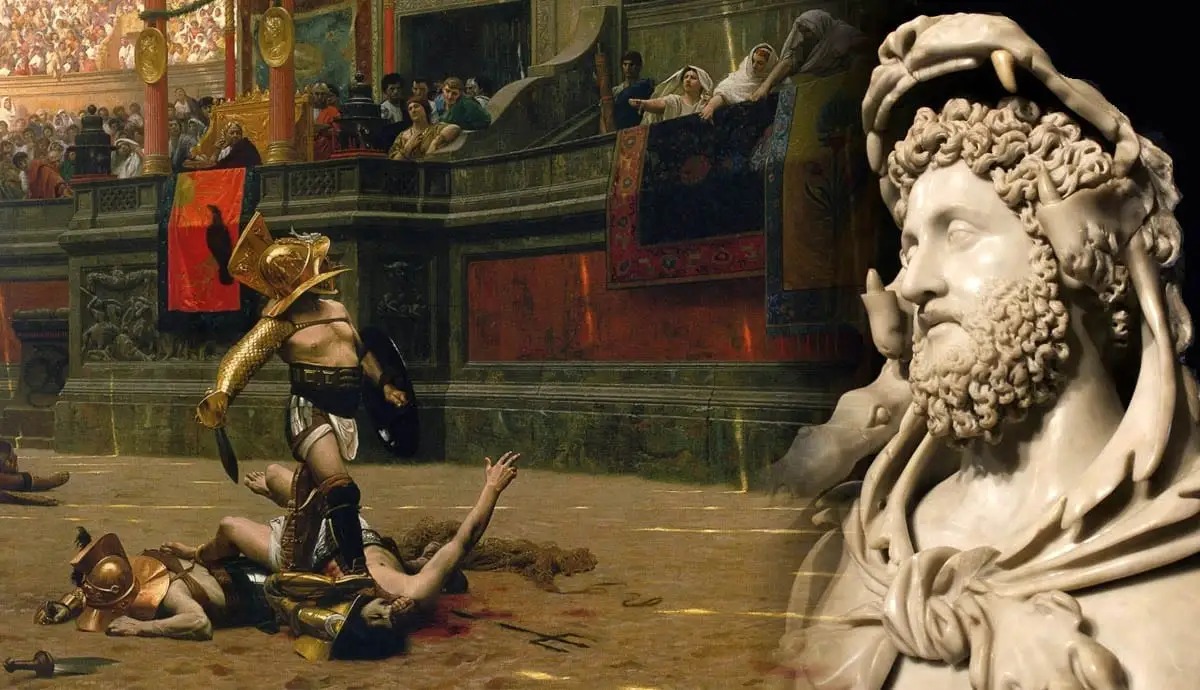
Commodus: a name that evokes both awe and abhorrence. Son of the legendary Marcus Aurelius, philosopher-emperor and author of the iconic Meditations, Commodus inherited a realm at the zenith of its power. Yet, his reign would irrevocably alter Rome's trajectory.
Was he a brilliant general, a cunning politician, or a megalomaniacal tyrant? History paints a complex portrait of a man who seemed to embody the best and worst of humanity.
On one hand, Commodus displayed early promise. He fought bravely alongside his father during the Marcomannic Wars, earning the title of Hercules Romanus. His early reign even witnessed some administrative successes. But this facade of competence quickly crumbled.
As power consumed him, Commodus descended into a world of delusions. He fancied himself a gladiator, battling wild animals and armed opponents in the arena. He demanded divine worship, adopting the titles of Hercules and Lord of the Universe. His paranoia led to mass executions of senators and courtiers.
Rome, once the mistress of the world, was plunged into chaos. The empire, once a beacon of law and order, was subjected to the whims of a madman.
But was Commodus entirely without redeeming qualities? Some historians argue that his reign was more complex than often portrayed. Perhaps, beneath the tyrant, there lurked a tormented soul, a victim of circumstance and upbringing.
Related Posts
The Rise and Fall of Julius Caesar: A Tale of Ambition and Betrayal
Julius Caesar, a name that echoes through the corridors of history as one of ancient Rome's most prominent and controversial figures. His life, marked by ambition, military genius, and ultimate betrayal, is a tale that continues to captivate and intrigue. The Ascent of Ambition Julius Caesar was born in 100 BCE into...
Read MoreSodom and Gomorrah: The Rise and Fall of Two Ancient Cities
Sodom and Gomorrah are two of the most infamous cities mentioned in ancient religious texts, notably the Bible. For centuries, they have symbolized divine judgment, moral depravity, and catastrophic destruction. Their story is told in the Book of Genesis, and echoes of their downfall reverberate through theology, archaeology, and mythology....
Read MoreMacrinus: The First Equestrian Emperor and His Brief Attempt to Stabilize Rome
Opilius Macrinus, an unexpected figure in the annals of Roman history, ascended to the imperial throne in 217 AD after the assassination of Caracalla. Unlike his predecessors, who hailed from the senatorial aristocracy, Macrinus was an eques, a member of the equestrian order, a social class traditionally associated with business...
Read MoreMatthew Henry’s Concise Commentary: A Timeless Guide to Biblical Understanding
Matthew Henry’s Concise Commentary on the Whole Bible is one of the most enduring and widely used resources for Bible study. Known for its clarity, depth, and spiritual insight, this commentary distills the essence of Matthew Henry’s original six-volume work into a shorter, more accessible format. It has been cherished...
Read MoreA Journey Through Time: Mapping Ancient Rome and Jerusalem
For centuries, Rome and Jerusalem have captivated historians and travelers alike. These two powerful cities, though geographically distant, were intertwined throughout much of their ancient history. But how close were they? Let's explore maps depicting these ancient cities and their respective empires. The Mediterranean World: A Roman Sea During the height of...
Read MoreDomitian: The Last of the Flavian Emperors and His Reign of Terror
In the annals of Roman history, the reign of Domitian, the youngest son of Vespasian and the last of the Flavian emperors, is often remembered as a time of tyranny, repression, and political intrigue. Domitian's rule, which lasted from 81 to 96 CE, stands in stark contrast to the relative...
Read More

















